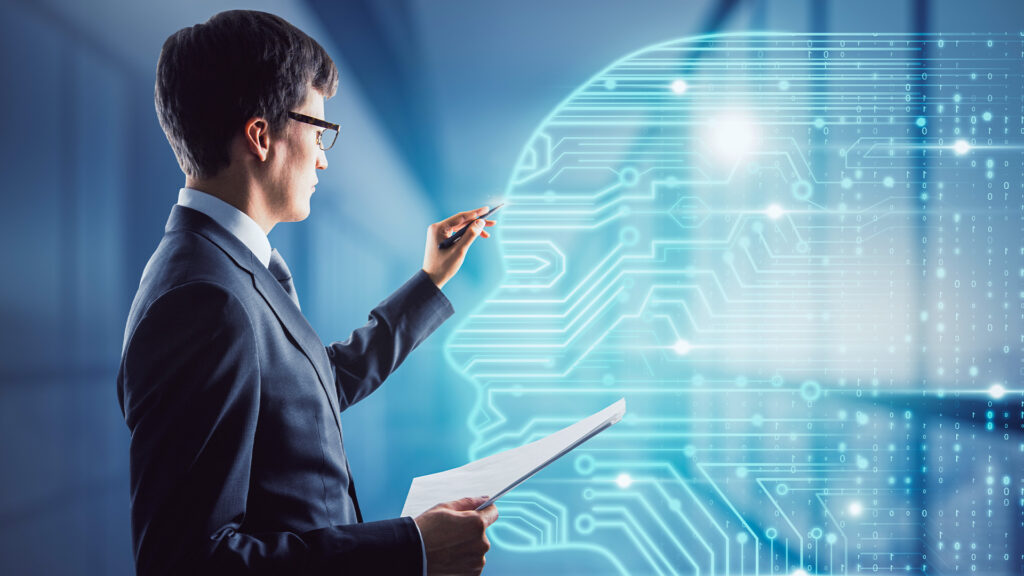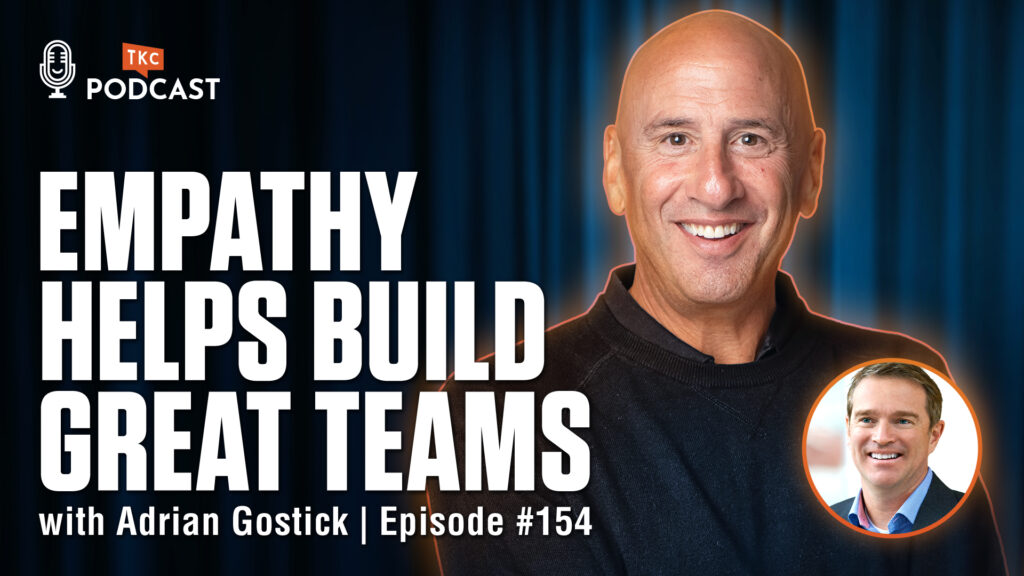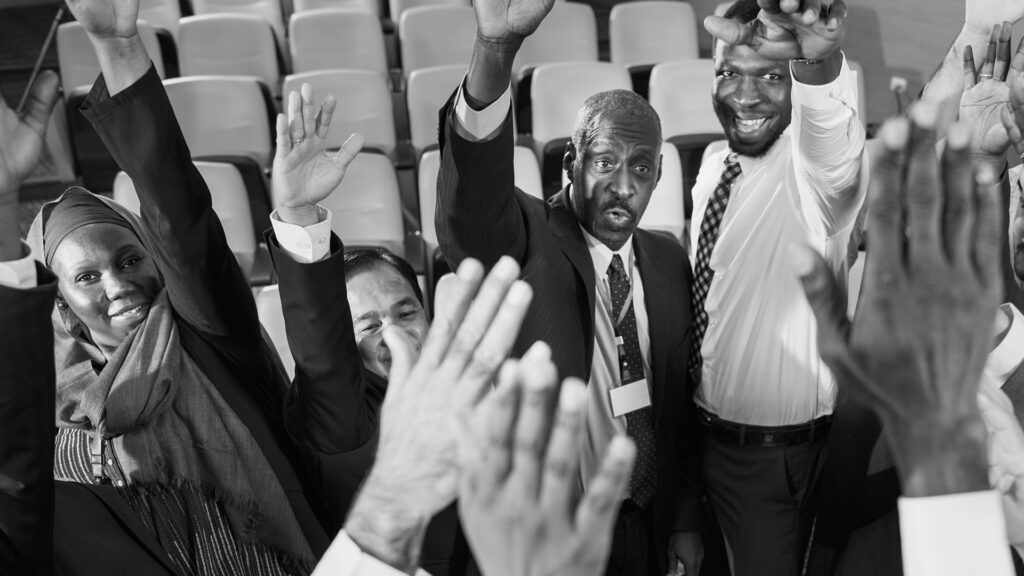- The Keynote Curators - Top Speaker Agency in North America
Michael Rogers is a best-selling author, technology pioneer and futurist, who most recently served as futurist-in-residence for The New York Times.
Michael began his career as a writer for Rolling Stone magazine. He co-founded Outside magazine and then launched Newsweek’s technology column, winning numerous journalism awards including the National Press Club award for his coverage of September 11.
For ten years he was vice president of The Washington Post Company’s new media division, leading both the newspaper and Newsweek in the digital world and earning patents for multimedia technology.
Michael is also a best-selling novelist whose books have been published worldwide, chosen for the Book-of-the-Month club and optioned for film. His latest book is Email from the Future: Notes from 2084.
He studied physics and creative writing at Stanford University, with additional studies in finance and management at the Stanford Business School Executive Program. He lives in New York City and is currently working on book and television projects.
This year is a turning point in public understanding—and concern—about artificial intelligence. The rapid rise of ChatGPT and its clones has been nothing short of astonishing. And it’s been matched by an outpouring of dire predictions, from human extinction to massive unemployment. But well before we grapple with existential questions about AI, there will be more practical challenges for business and society.
ChatGPT is a breakthrough in public awareness, but it’s actually a subset of AI that has been in development for several decades. “Cognitive computing” was first publicly displayed in game-playing bots that beat human champions in Jeopardy and Go.
Cognitive AI can ingest vast amounts of information and quickly generate reports or decisions comparable to human effort. This speech will offer fresh examples of what the current technology can do, as well as a look ahead at how the next generation of conversant artificial intelligence will evolve.
Social, legal and political challenges are imminent, as well as new questions about fair business practices, ethics and liability. AI has already raised issues, such as inadvertent redlining by AI-powered mortgage software, or discriminatory behavior by credit rating technology. As advanced AI grows more common in law, finance, medicine and similar critical professions, additional potential liabilities will arise.
Government oversight and regulation are unlikely to keep pace. The first “rules of the road” for AI may come from industry groups seeking to self-regulate, often emphasizing disclosure and transparency. Those efforts will be driven by insurance and legal concerns—the insurance industry is already looking at the potential liabilities of AI in their portfolios, from autonomous vehicles to cybersecurity. Insurers may require evidence of sound AI practices before issuing liability coverage.
Professional services will change with the adoption of cognitive computing. White collar employment, including law and finance, will be impacted, especially among younger workers. The result will be new efficiencies and surprising intelligent services that will challenge us to identify what skills are uniquely human.
Cognitive computing—such as the astonishing ChatGPT—is the latest and most potent expression of artificial intelligence. Software and robots can now learn from experience and then reason and act upon information--often coming up with insights that humans might not reach. Because they are “cloud-based”, these powerful thinking tools will be accessible even to small organizations and individuals. The result will be new efficiencies and surprising new intelligent services that will change the very nature of work and challenge us to identify what skills are uniquely human.
For this popular speech, Michael—who is also a best-selling science fiction writer— does an interview to learn more about your business, practice or discipline. He then creates a realistic scenario of what your profession or business may be like at the end of this decade. He’ll identify potential new products, new customers and new challenges. He’s done it for lawyers, health care professionals, transportation companies, retailers, educators, financial services companies and more—even a luxury goods manufacturer!
Over the next decade, more and more of our work, what we care about and how we interact with others will involve the Internet, intelligent computers and the Internet of Things. If you think that’s already happened...just listen to what Michael predicts is next. Add to that the rise of a new generation of “digital natives” who are remarkably comfortable with virtual relationships. What will this mean for how our businesses and organizations must evolve in the years to come? Is life in the metaverse inevitable? How will products change to meet new needs and what will companies do to reach their customers?
Never before has management’s life been so...interesting. Business, government and society are all creating a vast new digital infrastructure, from smart sensors and cognitive computing to wearable computers, extended social networks and virtual workplaces. That puts leaders in the midst of not just technical challenges but broader social quandaries such as the nature of privacy, white collar automation, reskilling workers, the rule of law in cyberspace--not to mention the strategic direction of the enterprise itself. How can successful managers discover and implement innovation while still meeting the daily challenges of business?
We’re all educators--either as professional teachers, or as managers, team leaders, mentors, or parents. In the future, we will be permanent students as well. The online world represents a powerful opportunity for education to reach a wider, more diverse audience. But it’s also a challenge to the future of both teachers and campuses. And there’s a second issue: what do we teach? Now that young people live with one foot in the virtual world, how does that impact education and employment? What skills will our students initially bring (or not bring) to campus, and what skills will they need to make their way in an increasingly automated world? Michael has spoken to educators worldwide ranging from K-12 to college, law and medicine.
The future is bright for medicine: telemedicine, wellness monitors, personal genomics, electronic health records, and more. Plus: “big data” and smart computers will choose the best and most efficient treatment options based on actual outcomes. All this progress will come with caveats, of course: how do we keep the human element in healthcare? What are the privacy implications of personal genomic data? How do we fund the latest technologies while still making sure that basic healthcare is affordable? Michael has presented this topic to pharmaceutical companies, hospital networks, health insurers, medical educators and more.

AI decision-making needs guardrails. Explore how keynote speakers help leaders build responsible AI governance without sacrificing innovation.
Read More
Storytelling expert Bruce Turkel shares proven techniques to transform events from forgettable presentations into experiences audiences remember.
Read More
Leadership keynote speaker Adrian Gostick shares how empathy, recognition, and purpose drive engaged teams in 2026.
Read More
Black History Month 2026 marks a century of commemorations. Discover keynote speakers who help organizations build dignity, dialogue, and trust.
Read More
Business leaders must adapt to market changes by staying resilient, learning fast, and pivoting strategies without abandoning their mission.
Read More
Leadership insights from Navy submarine officer Marc Koehler on making decisions under pressure using the 40-70 rule and crisis-ready preparation.
Read More